Change is hard for most of us. When we are asked to change something we are doing, we must give up security and stability in exchange for volatility and uncertainty. This is not a very appealing proposition on its surface. However, if we look below the surface, there is some good news waiting for us.
Your work world, as a health care provider, is undergoing a major change like this right now. The practices and systems that you’ve used to build your career are now being challenged by an increasing amount of data and research that suggests that the results you can achieve with your patients might be more predictable than we once thought.
How can that be? The simple answer is that electronic medical records are making it easier to look back over a large amount of patient data, make observations and comparisons, and generate predictions about how future cases might play out for other people in the same scenario. Now that predictions are becoming more mainstream, insurers are beginning to link the predictions to payment to create reimbursement systems that reward the best patient outcomes, not just the delivery of services.
This is an interesting place for health care professionals to be. This new scenario gives us more power than we’ve ever had before. We now have the opportunity to truly be rewarded for our expertise. I would even make the argument that receiving fair payment for one’s ability to get patients better faster is exactly what many of us expected would be on the other side of the degree we spent years earning. I know that’s what I was prepared to find. I am very happy that the day is finally here.
So here we are now with the opportunity to embrace a change that we’ve been trained for and one that is designed to make us even better providers over time. That helps make this change a little more attractive. Nevertheless, it’s still different, and different can be difficult. Thankfully the many behaviors that demonstrate high levels of professionalism, including flexibility, adaptability, integrity, and a passion for life-long learning among others, are the same behaviors seen in successful adjustment to change. Therefore, by embracing change, you are fine-tuning your professionalism. I like that tradeoff for something that is coming either way.
Still not convinced? Harvard Business Review recently published a great article about how to overcome mental hurdles. The author offers four types of “psychological distance” that we often face: social, temporal, spatial, and experiential. She then suggests that we can substitute in one that is easier for another causing the challenge to help cover the distance from where you are to where you want to be.
We have many opportunities to apply this approach to outcomes-based reimbursement. This reality is quickly moving from the future to be a present issue. Probably the most common challenge to this change is in the experience aspect – in other words, it is hard to move from imagining a new payment system to being ready to experience (and even embrace) it.
To overcome this barrier, consider tweaking the temporal – or time – aspect in your mind. Consider that every change we encounter is really just a single point in time; a point of time that begins in front of us, but then quickly moves behind us after we experience it. Imagine that you just experienced being rewarded for your outcomes. Imagine you used your expertise to help Mrs. Johnson get home faster and better than she ever thought she could because you leaned on the research to drive your therapy plan. In fact, not only is she going home but she’s going home confident because you helped her increase her strength and function to get her walking out the door at a pace of 3.3 meters/second – the proven speed that moves her beyond a risk of further functional decline. Feels good, doesn’t it?
As I think about the constants in my own life, I find an interested revelation come up: what is comfortable for me now was once a new experience – a change – that I encountered, integrated into my life, and became a new reality for me. It doesn’t matter where I am, they all arrive and pass the same way. Consider your own experiences and I suspect you’ll find the same comforting observation. If you find yourself doubting the process or the hard work of doing something new, remember that today’s change is tomorrow’s constant. You’re already there in your mind. Go make it a reality in your practice.
Source:
Hamilton, R. (2015, March). Bridging Psychological Distances. Harvard Business Review, online.
Derek Fenwick, PT, MBA, GCS is a physical therapist and board-certified geriatric clinical specialist. He develops leaders in healthcare as the Director of Professional Development at Infinity Rehab. Find him on LinkedIn and on Twitter @DerekFenwickPT.





